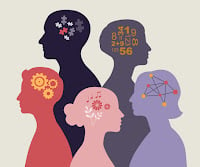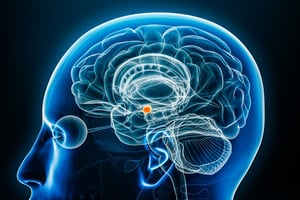Psychiatrists With Autism Share Their Journey of Self-Discovery With Researchers

Psychiatrists who are unaware that they themselves are autistic may fail to recognize the condition in their patients, according to a study issued in British Journal of Psychiatry Open that interviewed autistic psychiatrists and compared their experiences.
“The diagnostic criteria for autism remain deficit focused and do not appear to include the possibility of an autistic person thriving. Therefore, successful psychiatrists may fail to see themselves reflected in these criteria,” wrote Mary Doherty, M.D., of University College Dublin in Ireland, and colleagues.
Doherty and colleagues examined the question “what are the experiences of autistic psychiatrists in relation to recognizing autism?” They recruited eight autistic psychiatrists in the United Kingdom from a psychiatry-specific subgroup of Autistic Doctors International and conducted loosely structured Zoom interviews, averaging 88 minutes each. The researchers extracted and analyzed experiential statements from transcripts and constructed a table of personal experiential themes for each participant. Next, they developed group experiential themes, which highlighted areas of similarity among participants as well as areas of divergence.
The researchers uncovered three themes: recognizing oneself as autistic, recognizing colleagues as autistic, and recognizing patients as autistic. Only one of the psychiatrists had been diagnosed with autism as a young child; others found out through personal experiences, such as their child’s diagnosis, or by recognizing similarities between themselves and their autistic patients. Some conferred with their colleagues to confirm what they suspected. Some were even identified as autistic by their patients.
All participants reported the ability to quickly recognize autistic patients, including those missed by colleagues, and to develop good rapport with them, once they were aware of their own autistic identity. However, several participants recounted challenges earlier in their journey, prior to becoming aware of their diagnosis. Once self-recognition occurred, the psychiatrists began to notice that many of their colleagues—especially those specializing in autism or attention deficit/hyperactivity disorder—might also be autistic but unaware.
“The need for autism training across all health care settings and professional groups is undisputed,” the researchers wrote. “The experiences, perspectives, and insights of autistic psychiatrists have potential to inform such practice, yet ableism in medicine and the stigma associated with an autism diagnosis may impede recognition; this may have negative implications for patients. Increasing visibility of traditionally under-recognized groups of autistic people, particularly women, those from ethnic minority backgrounds, and multiply neurodivergent individuals, may also assist self-recognition by autistic psychiatrists.… Self-recognition and disclosure by autistic psychiatrists may be facilitated by reframing the traditional deficit-based view of autism towards a neurodiversity-affirmative approach, with consequent benefits for autistic patients.”
For related information, see the Psychiatric News article “Peer Specialists With Autism Have Insight Few Others Possess.”
(Image: Getty Images/iStock/MarLei)
Don't miss out! To learn about newly posted articles in Psychiatric News, please sign up here.





